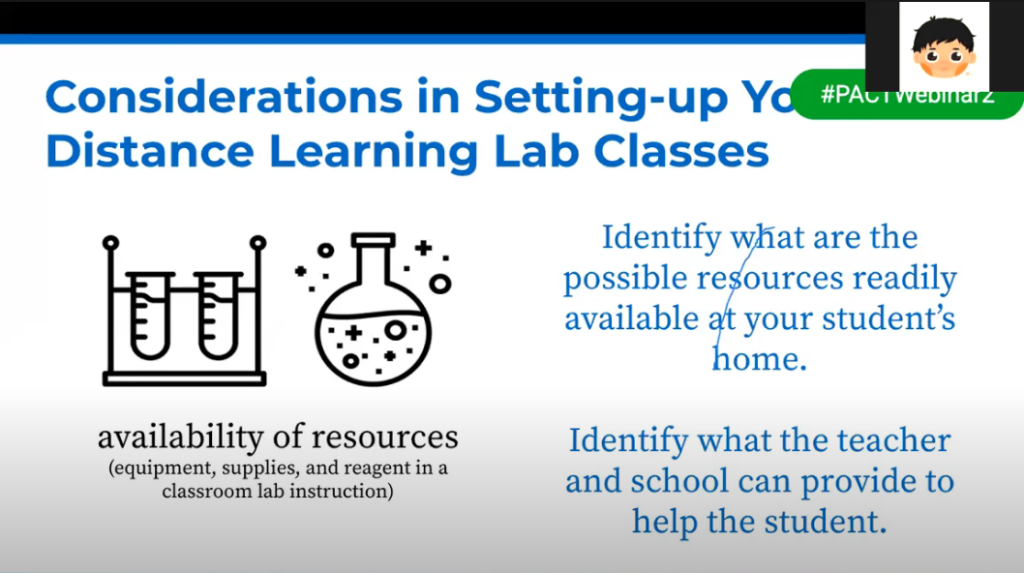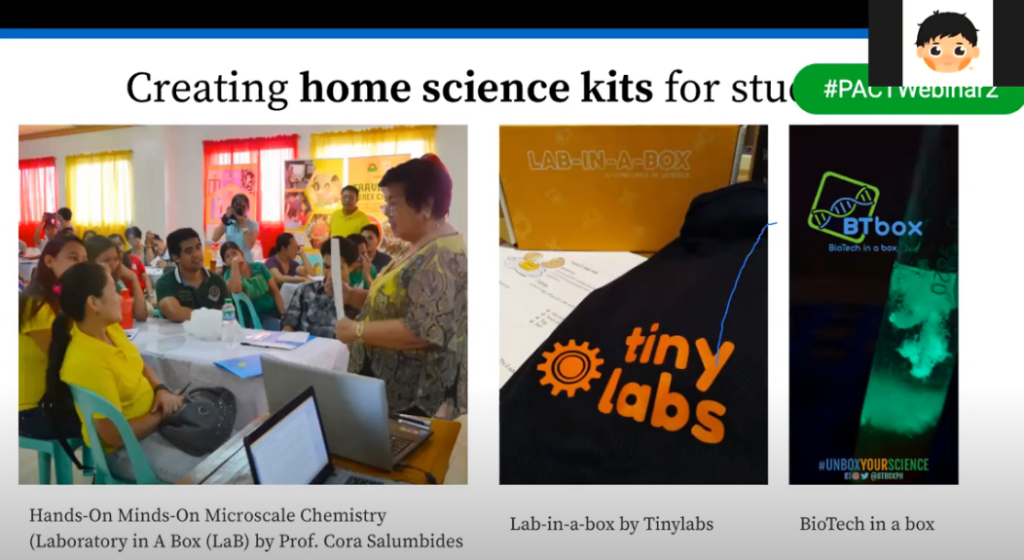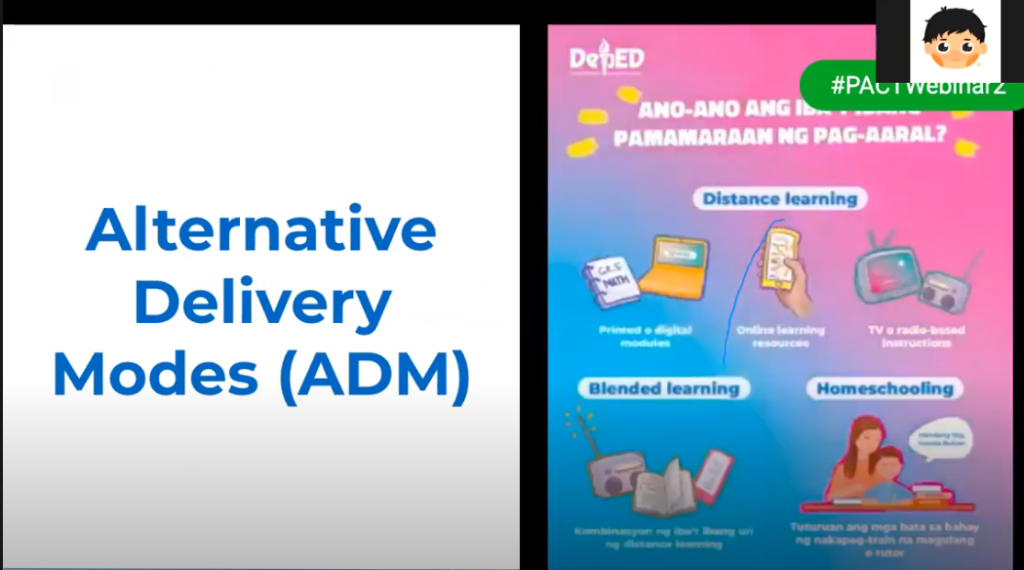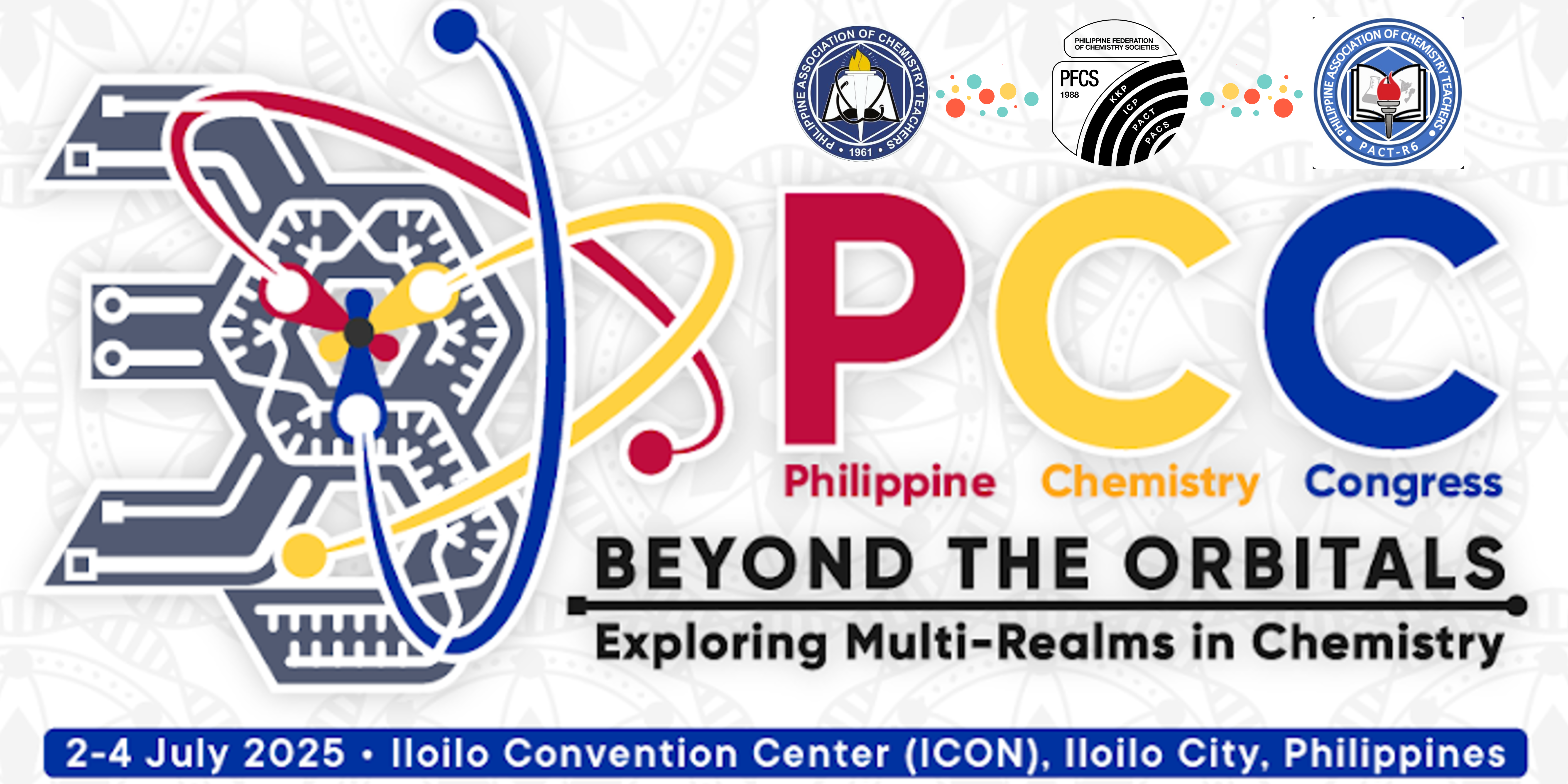By: Adam Ong
In the second Webinar of the #imPACT series titled Designing Distance Learning Laboratory Classes in Chemistry for Basic Education Teachers, by Carlo Joseph Moskito of Quipper Philippines, expresses the difference in teaching chemistry from a hands-on experience to a distance learning setting. Chemistry is a subject that contains a lot of experiments and hands-on activities which can’t be fully made in a distance learning setting. Being in a time where teachers have to think of ways to have laboratory experiments while online, he gives online materials and suggestions that can work while being in a distance learning setup.

He introduces open educational resources, or OERs, like OERCommons and MERLOT as online resources that can be used to search for ready made materials for laboratory experiments. Additionally multimedia platforms such as Vimeo and YouTube and digital simulations like PhET and CK-12 can be used for demonstration and visualization of experiments. A resource that he particularly likes are home science kits. He expresses his frustration due to the lack of home science kits in the Philippines and wants to create one. It will allow kids to do science experiments at home by purchasing a ready-made kit with all the necessary materials to conduct an experiment.

Other than showcasing available resources, he summarizes the distance learning delivery modes into four. The Printed Modular method has the teacher provide printed worksheets for the students containing clear and digestible steps. It is simple, safe and easy for individualized tasks. Offline Digital, similarly to Printed, uses a worksheet but also uses digital outputs to enhance the outputs. Synchronous is a mix of hands-on experiments and digital experiments during a synchronous class session. Asynchronous is similar but with pre-recorded videos.

This was only a quick overview of everything to be said. There are many options when it comes to distance learning and thankfully the full talk can be found on the PACT YouTube page. With this talk, Carlo Moskito shares considerations and ways to improve distance learning during this time.



